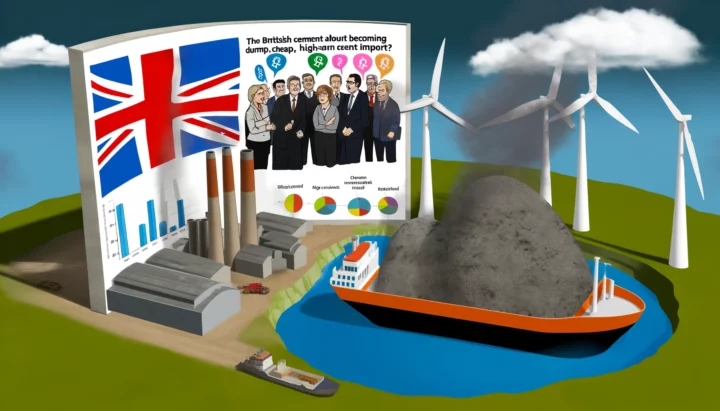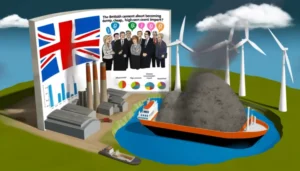The British cement industry has raised alarms about the country becoming a “dumping ground” for cheap, high-carbon cement imports, which now constitute up to 40% of the market. The industry attributes this surge to the UK’s failure to adopt European Union trade protection measures post-Brexit, leading to increased imports from Turkey, North Africa, India, and China.
Industry leaders are urging the UK government to implement a carbon border adjustment mechanism (CBAM) similar to the EU’s. This mechanism, set to be fully operational by 2026, imposes financial penalties on high-carbon imports, discouraging their entry. Without such a measure in the UK, producers from regions with lax carbon regulations are flooding the market.
The Treasury has considered introducing a UK carbon tax from 2027, but the industry fears political delays due to the current parliament’s term ending soon. Executives worry that the government’s stance on free trade and reluctance to align with EU policies is hindering decisive action.
Industry leaders also emphasize the need for a clear and consistent policy framework to facilitate long-term planning and investment in low-carbon technologies. Without predictable regulatory support, companies may hesitate to commit to costly decarbonization initiatives, which could further delay the UK’s progress towards its climate targets. The uncertainty surrounding carbon taxation and trade policies risks creating an unstable business environment, making it challenging for the cement industry to achieve sustainable growth while reducing its carbon footprint. Therefore, a collaborative approach between the government and industry stakeholders is essential to establish a balanced and forward-looking strategy that addresses both environmental and economic concerns.
Simon Willis, CEO of Heidelberg Materials UK, emphasized the industry’s desire to invest in decarbonization, such as carbon capture technology at the Padeswood plant in Wales. He warned that relying on high-carbon imports could lead to de-industrialization.
The issue reflects broader concerns about the UK’s reliance on importing carbon-intensive products to meet carbon reduction targets. Lex Russell, Managing Director of Cemex UK, highlighted that the absence of a UK CBAM disadvantages domestic producers, discouraging foreign investment and undermining the UK’s competitiveness in decarbonization.
Official data for 2022 shows cement imports have tripled since 2000, now accounting for 30% of UK usage, with unofficial estimates suggesting this has risen to 40%. The cement industry, employing around 2,500 people directly and many more in its supply chain, is crucial for achieving housing and infrastructure goals. Rob Wood, CEO of Breedon, stressed the importance of a reliable domestic supply for these projects.
Furthermore, industry experts warn that the over-reliance on imported cement not only poses environmental risks but also creates economic vulnerabilities. Sudden shifts in global trade policies, geopolitical tensions, or disruptions in the supply chain could lead to significant price volatility and supply shortages, impacting the UK’s construction sector and the broader economy. To mitigate these risks, there is a pressing need for strategic investments in domestic cement production capabilities, ensuring long-term resilience and stability for essential infrastructure projects.
















